Introducing the teacher
Scientific and Quranic life
Ayatollah Grand Ayatollah Javadi Amoli, may his blessings be upon you
Hakim Mutala, Ayatollah Grand Ayatollah Javadi Amoli is one of the prominent contemporary scholars and one of the profound interpreters of the Holy Quran. As a result of his scientific genius and creativity and the use of prominent professors in knowledge and spirituality, he has reached comprehensiveness in Islamic intellectual and narrative sciences, he has nurtured thousands of talented students in his school of thought and presented dozens of profound works to the world of science and knowledge. The depth of his thoughts, his noble and noble morals, and his firmness and mastery of behavior are also the inspiration of those who seek knowledge and practice. His long engagement with the Holy Qur'an is evident in his humanistic teachings and guidelines and the spread of culture.
He was born in 1312 Shamsi according to 1933 AD in the Islamic Republic of Iran (Mazandaran province, Amol city) in a spiritual family and a preacher of divine rules and teachings. And fulfilling the spiritual mission about religion and its promotion in 1325 Shamsi according to 1946 AD, he entered the seminary of that city and benefited from the presence of his honorable father, the late Hojat al-Islam Mirza Abulhasan Javadi Ameli and other prominent scientific figures of that time, and the foundations of seminary sciences And he studied some intermediate levels (Arabic literature, logic, principles of jurisprudence, jurisprudence, interpretation of the Qur'an and hadith) for five years; Also, the foundations of his spiritual and moral behavior and his discipline and tahjud were solidified in Imam Hasan Askari (peace be upon him) school of that city.
In 1329 Shamsi according to 1950 AD, he immigrated to Tehran and for five years in the Maravi School of that city, he continued to study religious sciences in the presence of the great scientific figures of that era, such as Sheikh Mohammad Taqi Amli, Allameh Haj Sheikh Abolhasan Shaarani, Mohiuddin Elahi Qomshaei and Mohammad Hossein Fazel Tuni paid attention to the learning of rational and mystical sciences in addition to fiqh and principles, and at the same time, he also started teaching Islamic sciences.
In 1955 AD, Shamsi migrated to Qom Seminary and studied the most specialized seminary courses in the presence of Ayatollah Seyed Mohammad Hossein Boroujerdi, Ayatollah Seyed Mohammad Mohaghig Damad, Ayatollah Mirza Hashem Amoli, Hazrat Imam Khomeini and Allameh Tabatabayi.
From the time he was gathering knowledge in Tehran, while he studied with the professors and masters of Islamic studies, he started teaching various rational and Islamic subjects, and even now about 60 years of his blessed teaching life have passed. While teaching other Islamic sciences, he has paid special attention to the interpretation of the Holy Quran, and he has started teaching the interpretation of the Holy Quran since 1355, corresponding to 1976 AD and is still continuing.
Scientific method and conduct
It refers to the scientific conduct, qualities and spiritual and intellectual characteristics of Allameh Javadi Amoli in the axis of learning, research, teaching, education and authorship. Every author's work is a mirror of his scientific ethics, and the works of Grand Ayatollah Javadi, especially the interpretation of Tasnim, are also a manifestation of the honorable and noble scientific ethics of its honorable commentator, some of which are mentioned:
1. Scientific freedom of thought: Ayatollah Grand Ayatollah Javadi's scientific freedom of thought in criticizing and evaluating the intellectual thoughts of the owners of various philosophical and mystical schools, as well as the interpretive thoughts of the great cylinders of Tafsir knowledge such as Tabari, Sheikh Tusi, Sadr al-Mutalahin Shirazi, Mohiuddin Arabi, Mohammad Abdo, Sayyed Mahmoud Alousi, Qurtubi, Zamakhshari, Fakhr Razi, Allameh Balaghi and Allameh Tabatabayi can be observed.
2. Scientific comprehensiveness: His scientific comprehensiveness and great benefit from various Islamic sciences, especially literary and rhetorical sciences, logic and philosophy, speech and mysticism, principles and jurisprudence, interpretation and hadith, have made him able to examine every problem and issue. And the scientific topics are avoided from monotony, with a comprehensive view to criticize and evaluate and analyze it scientifically.
3. Academic leadership: this characteristic of the professor, in dealing with the thoughts, schools and questions of others, has caused his lecture hall to receive a large number of scholars, and his works, including the interpretation of Tasnim, are a suitable place to raise problems and doubts. It is about Quranic teachings and rulings. The vote plan of non-religious and intra-religious opponents has been praised as a manifestation of this attitude.
4. Scientific knowledge: The scholar's knowledge in the field of Quranic and narrative knowledge is evident in various works, including Tasnim
. Scientific subjection: The scientific subjection of the teacher is evident in the field of Quranic and narrative knowledge, in various works, including Tasnim.
5. Methodology in scientific inference: One of the greatest research and educational characteristics of Allameh Javadi is "methodology", which is one of the manifestations of his scientific conduct, as in Tasnim without interfering with his own or others' taste and taste, and dealing with intellectual and customary preferences. Rather, he deals with it by adhering to a strong and firm methodology and based on the basic principles of knowing the Qur'an, and never goes beyond the boundaries of fundamentalism and regulation.
6. Audience-centered in education: This feature means paying attention to the scientific needs as well as the level of understanding and thought of the audience and giving space to his questions and criticisms. This characteristic is one of the reasons for the voluminous nature of some works such as Rahiq Makhtoum and Tasnim, as al-Mizan was compiled in two volumes at the beginning, and after the presence of discerning and hard-working students such as martyr Ayatollah Motahari and Ayatollah Javadi in the academic presence of Allameh Tabatabayi, it became twenty. Volume expanded.
7. Appreciation of the masters and pioneers: Ayatollah Azami Javadi has appreciated the pioneers of various Islamic sciences, including the interpretation and sciences of the Qur'an, and their precious heritage in various places in his works. Among other things, he has praised his teacher Allameh Tabatabayi (Qudssarrah) with greatness many times.
8. Adherence to politeness and fairness in criticism: Ayatollah Azmi Javadi in his various scientific works both proposed and criticized the opinions of previous scholars and weighed the views of contemporaries in the amount of criticism and evaluation. But he always observes the chastity of the pen and the decency of the writing from any kind of sharp, sarcastic, biting and destructive criticism, and his criticisms are accompanied by politeness, fairness and gentleness in interpretation.
Possessing noble and generous scientific ethics, examples of which have been mentioned, has placed His Holiness in the position of one of the few professors in the Islamic world. It is useful to pay attention to some judgments in this field:
The educational, scientific and cultural organization of the Islamic Conference Organization (ISECO) and also the Culture and Communication Organization of the Islamic Republic in their message on the occasion of the selection of Tafsir Tasnim as "the best research in the field of Islamic and Qur'anic studies" in 2015 Shamsi addressed to Mafsar, to The title of "the eminent and precious sage, jurist and exegete" is given as follows:
His Excellency's outstanding work on the interpretation of the Holy Quran "Tasnim" has been selected as the best research in the field of Islamic and Quranic studies and thanks to the years of benefit of the thinkers of the Islamic world from his high thoughts and insight and vast knowledge, especially in the field of interpretation. The Holy Qur'an, a part of which has been revealed in the above worthy interpretation...
In the message of the director of ISESCO's regional office in Tehran, it is also stated:
Honorable Ayatollah, Allame Abdullah Javadi Amoli!
I am honored to offer my congratulations on the occasion of your selection as one of the three prominent authors in the Islamic world in the field of Islamic research in 2006 by ISECO and the Organization of Islamic Culture and Communication.
This choice is to honor and appreciate your valuable book, Tafsir Tasnim.
It is not hidden from the sages and virtuous people that you are one of the most outstanding professors in the Islamic world, and thank God, you were able to learn the intricacies of the knowledge of philosophy, mysticism and religion with your genius and creativity, and with the utmost precision and tact, and all of them in Use the Book of Light [Qur'an]. May such success be yours.
Tasnim interpretive method
Academic leadership: this characteristic of the professor, in dealing with the thoughts, schools and questions of others, has caused his lecture hall to receive a large number of scholars, and his works, including the interpretation of Tasnim, have become a suitable place to raise problems and doubts. It should be about Quranic teachings and rules. The vote plan of non-religious and intra-religious opponents has been praised as a manifestation of this attitude.
4z
From the point of view of Tasnim exegete, the sources of Qur'anic interpretation are "Qur'an, Sunnah and Reason" and since the "methodology and method of interpretation" of each exegete has a close connection with the "sources of Qur'anic interpretation", we can briefly call Tasnim's exegetical method "comprehensive ijtihadi method" and including "interpretation of the Qur'an by the Qur'an", "explanation of the Qur'an by the Sunnah" and "interpretation of the Qur'an by reason". Among these three methods, the most efficient one is "interpretation of the Qur'an to the Qur'an", because the most important source of the interpretation of the Qur'an is the Qur'an itself, which is its own expositor, witness and interpreter, and has a profound effect on reaching the teachings of the Qur'an.
More emphasis on "interpreting the Qur'an according to the Qur'an" never means negating the interpretation of the Qur'an according to the Sunnah or rejecting the interpretation of the Qur'an according to reason, and even means not using human sciences and empirical knowledge in the interpretation of the Qur'an.
According to Tasnim commentator, interpreting the Qur'an to the Qur'an is the method of interpretation of the Holy Prophet (PBUH) and Ahl al-Bayt (PBUH), which is infallible from every theoretical error and immune from every practical slip, and as a result, following them is necessary, life-giving and saving. .
Atrat study
Undoubtedly, the great treasure of Atrat and the great reserve of the Ahl al-Bayt (peace be upon them) is one of the highest gifts and the highest blessings of God to the world of humanity. Because the only way that provides true knowledge and authentic knowledge along with real inclination and true desire to man is the unique Sharia and the unique method of the Ahl al-Bayt (peace be upon them) along with the irreplaceable truth of the Holy Quran.
Hazrat Ayatollah Javadi Amoli is one of the prominent scholars and profound thinkers of the contemporary era, who has written and expressed many works in the field of introduction and deep interpretation of the divine and exalted personality of Prophet Muhammad (peace be upon him and his family) and his pure purity, as well as explaining and He has presented the precious teachings of those holy beings who are the true caliphs of God Subhanahu wa Ta'ala and companions of the Holy Qur'an to their admirers and loyalists. These works are in the form of 18 book titles and 44 volumes. And the book "Edab Fanai Moqraban" describes the pilgrimage of Jamia Kabira, which is a comprehensive encyclopedia on the subject of perfumery, and so far 7 volumes have been published and it reaches 15 volumes.
Features of the professor's jurisprudential and principled method
1. Logical structure: The professor while giving a lecture on foreign jurisprudence of Grand Ayatollah Mohaghig Damad, which lasted for more than 14 years and many books including Hajj, Salat and Khums were published. The external course of the professor, Ayatollah Azami Javadi Amoli, is one of the regular external jurisprudence courses of Qom Seminary, which has a logical and methodical structure. The various steps in the process of examining a jurisprudential issue are described in his lesson: a. problem statement and discussion question; b. editing the place of discussion and explaining the point of ambiguity; J. Transferring the views of technical experts and examining the theories of three eras of jurist a) Sheikh Tusi and Mufid. b) The period of the late Mohaghegh and Allameh Hali. c) contemporary era and late jurists; d. Criticism of experts' arguments; e. Argumentative proof of Mukhtar's point of view; And. Final summary and conclusion.
2. Observance of the position of the weights: In the words of the Holy Prophet (PBUH), the Noble Qur'an has been introduced as the greatest weight and Atrat as the lesser weight, and in all branches of Islamic sciences, including jurisprudence, this position must be respected, and the teacher, Ayatollah Azmi Javadi, what In the interpretation of the Holy Qur'an as well as in jurisprudential thinking, they have always emphasized on it and were bound by the fact that they first use the verses of the Holy Qur'an to draw the main line of a ruling or a knowledge statement, and while using the Qur'an, they use the Sunnah of Saql Asghar.
. A governmental view of jurisprudence: religious government and jurisprudence is the basis for the implementation of all the rules of religion, and therefore in the implementation of the rules of religion, especially its social rules, the rule of a just jurist over the nation should be taken into account, as in issues such as the determination of the first of the month, peace and war. And the occupations of the judge in the role of the guardian of the jurist are clear and the jurisprudential thinking of His Holiness has this feature.
4. Applying jurisprudential rules and rulings to the issues of the world and contemporary society: Examples such as the discussion of the legality and correctness of concluding contracts such as renting online or the sanctity of renting internet sites to promote corruption and the spread of prostitution in society can be exemplified in the professor's jurisprudence method. .
His wise method and scientific conduct in explaining and teaching wisdom, especially transcendental wisdom
As it happened, Grand Ayatollah Javadi Amoli, at the same time as he migrated from Amol to Tehran to continue studying religious sciences, along with the courses of jurisprudence and principles, he studied intellectual sciences (words, philosophy and mysticism) and learned these sciences from the presence of professors such as Allameh Zufnoun. Haj Sheikh Abolhasan Shearani and Ayatollah Haj Mirza Mehdi Mohiuddin Elahi Qomshaei, Ayatollah Mirza Hossein Fazil Toni and Ayatollah Sheikh Mohammad Taqi Amli learned; Also, after immigrating to the seminary of Qom, he studied specialized courses in philosophy, rhetoric, and mysticism from professors such as Allameh Tabatabayi.
Ayatollah Javadi started teaching intellectual sciences from the time of his education in Tehran Seminary, and now about sixty years of his blessed life have passed. The product of Ayatollah Javadi's teaching in intellectual sciences in various branches of philosophy, religion, mysticism and additional philosophies are works. Some of them were mentioned in the topic of scientific works.
In this area, we will examine the lesson of supreme wisdom and the product of this lesson:
Ayatollah Javadi taught three courses of Sadr al-Mutallahin Shirazi's Asfar book called Hikma al-Mutaaliyyah fi al-Asfar al-Rabbah in Qom Seminary, and hundreds of scholars of intellectual sciences benefited from his fruitful lessons. It was, but beyond that, he paid attention to the important works written in the field of ontology, and important opinions about ontology have been examined, criticized and analyzed.
The product of the third course of Asfar teaching by Allameh Javadi Amoli is the precious book Rahiq Makhtoum's description of transcendental wisdom, which was prepared for publication in 35 volumes by the efforts of researchers and students of the master's philosophy school, and ten volumes have been published so far.
Raheeq Makhtoum is a deep and extensive explanation of Sadra's supreme wisdom, which is presented to wisdom seekers, and it can be considered the most profound and extensive philosophical work about Asfar.
One of the greatest features of Rahiq Makhtoum is the presentation of the harmony of proof, mysticism and the Qur'an.
The name of this work is taken from the 25th verse of the Mubarakah Surah "Mutaffafeen": Makhtum's nectar is a pure and pure drink of heaven's essence mixed with drops of Tasnim fountain (specially close to God) This drink has been given the Meshkin seal of protection against pollution and invalidity, and therefore it is safe from any kind of contamination.
So, Tasnim is a great spring from which the special pure wine of God's intimates boils, and the sealed nectar of a fountain from which the wine of Abrar flows, and the value of the sealed nectar increases with a mixture of the Tasnim spring, and since the validity of all knowledge, including wisdom, is harmony with The Qur'an is noble, Ayatollah Javadi, inspired by this knowledge of the Qur'an, has named his philosophical work "The Exposition of the Exalted Wisdom" as Rahiq Makhtum and his Qur'anic precious work as "Tasnim". And on the other hand, the Quran is one of the precious and memorable works that can be mentioned as the original Islamic mysticism with scientific and academic work.
Some of the cases of the philosophical life of Sadr al-Mutallahin, which are mentioned in the works of Grand Ayatollah Javadi Amoli, are:
1. The correct writing of the main issue and the correct explanation of the previous content.
2. Acquaintance with the basics of Greek wisdom and Islamic wisdom and protecting them from being distorted and misconceived.
3. Inferring many branches from all the foundations of the predecessors, which were not considered by them based on the accepted principles.
4. Establishing new principles and foundations, each of which is a ground for inferring many other deep branches.
5. Fair judgment between the opinions of the past and identifying the fat and fat and investigating what is right and rejecting what is wrong.
6. Not being satisfied with proof alone, but paying attention to the study of mysticism and intuition, and not being satisfied with the combination of proof and mysticism without presenting the Qur'an and revelation as the center of thinking and the focus of intuition, and many of the principles of proof and areas of mysticism are guided by it. Providing and matching between wisdom and Shari'ah, and considering Shari'a to be more beautiful than it does not make it with divine philosophy, and considering philosophy to be smaller than that does not agree with Shari'a.
. Having a rational vision and a tendency to prove, not surrendering to fame, and not changing one's mind from praising the president, and opposing the wise president's votes in the event of their neglect, as well as the illusions of the masses of the people in the event of their deviance, because the president is resident and wise. He is a migrant and the migrant will not necessarily agree with the resident and this meaning can be understood from the title of the book Asfar.
8. Examining the validity and correctness of the speech of the innocent (peace be upon him) without attributing it to the speaker, and not considering the specific religion as the reason for the strength or weakness of his words, but to measure the steadfastness or laziness of the speaker with his words, because what he wrote in writing or tongue or It is said that the interpretation of the intellect is raqim or the saying: "Talkmowa tuarfowa, فن المدنه مبعوم under the tongue".
Political, social and cultural activities
Grand Ayatollah Javadi Amoli, who spent about 13 years in the presence of the great leader of the Islamic Revolution, Imam Khomeini, and was inspired by his thoughts and character before the victory of the Islamic Revolution in Iran, was one of the founders of the revolution and promoted progressive ideas. Imam Khomeini led the society towards imitating the Imam, but rather a comprehensive and all-round support to him, and for this reason, he was banned and arrested several times from preaching and speaking during the reign of oppression.
After the victory of the Islamic Revolution of Iran, in 1358 Shamsi according to 1979 AD, he was placed in the post of judge by a ruling of Imam Khomeini, and also became a member of the Supreme Judicial Council, and in that governmental institution, he undertook the preparation of draft judicial laws.
He was also elected by the people of Mazandaran province in the elections of the Assembly of Leadership Experts (first and second round) as a representative of that assembly.
Grand Ayatollah Javadi Amoli, after the victory of the Islamic Revolution of Iran, made several overseas propaganda trips to America, Italy, France, England, Germany, Switzerland, Austria, the former Soviet Union, Syria and Lebanon, the most important of which was a trip to Moscow in 1367 Shamsi according to 1988 AD to present and explain Imam Khomeini's message to Mikhail Gorbachev, the leader of the former socialist Soviet Union, and also his trip to New York in 1379 Shamsi according to 2000 AD to present the message of the leader of the Islamic Republic of Iran, Ayatollah Khamenei to the meeting of the Millennium of Religions Was.
Now Ayatollah Javadi Amoli, while continuing to teach the interpretation of the Holy Qur'an and jurisprudence as a religious and scientific authority, has played a role in the production of sublime thoughts in various fields of intellectual and narrative sciences, and while responding to the scientific and practical references of the Islamic society by observing Global scientific and cultural movements fulfill their mission in the global society with scientific and wise guidelines, theories, thoughts and guidance and the production of scientific works.

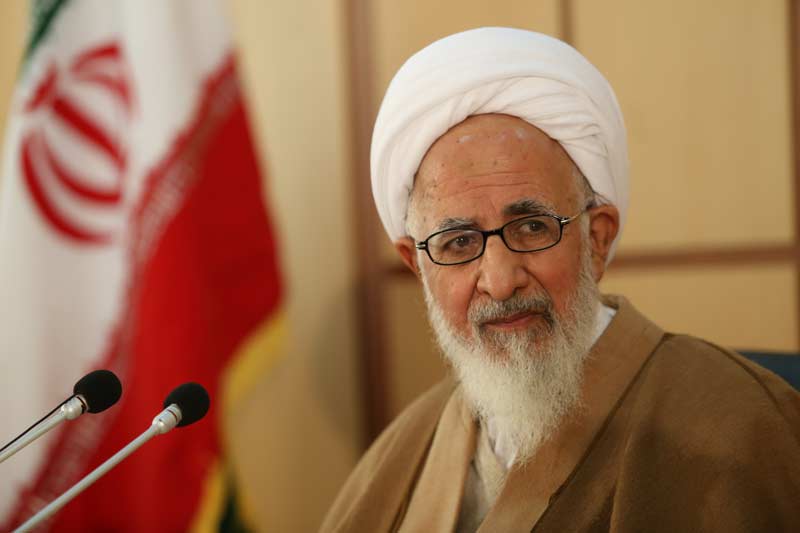


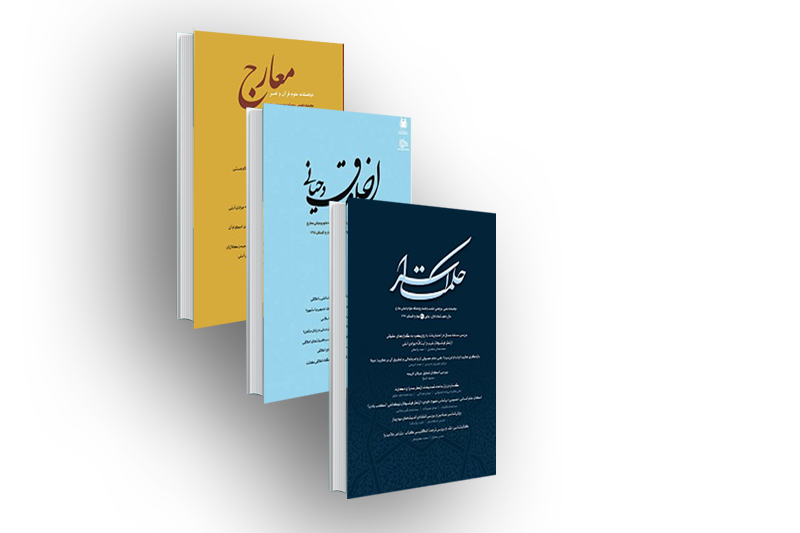


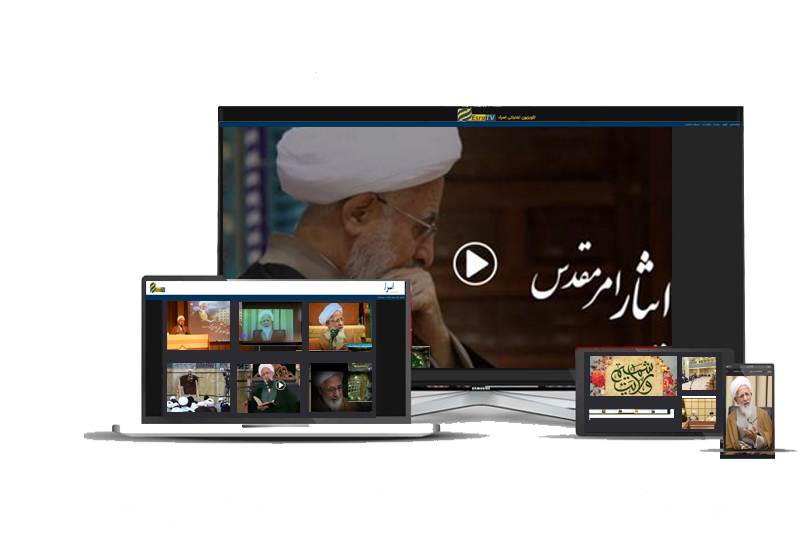
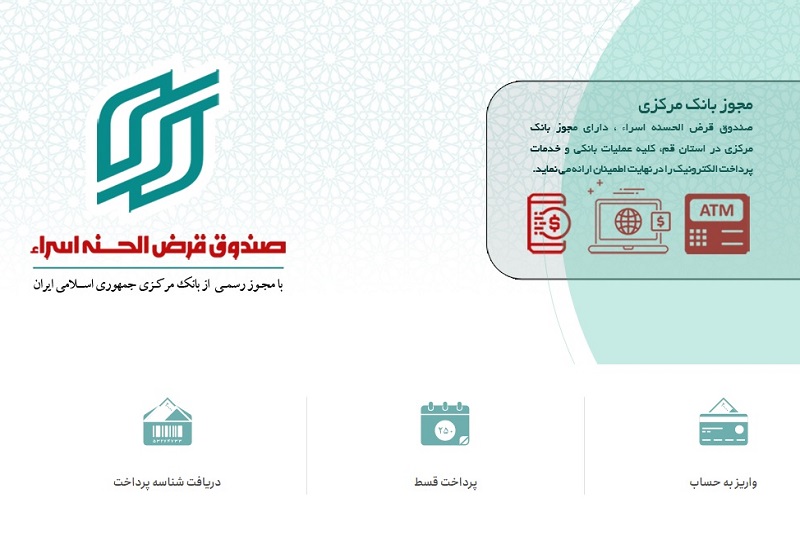

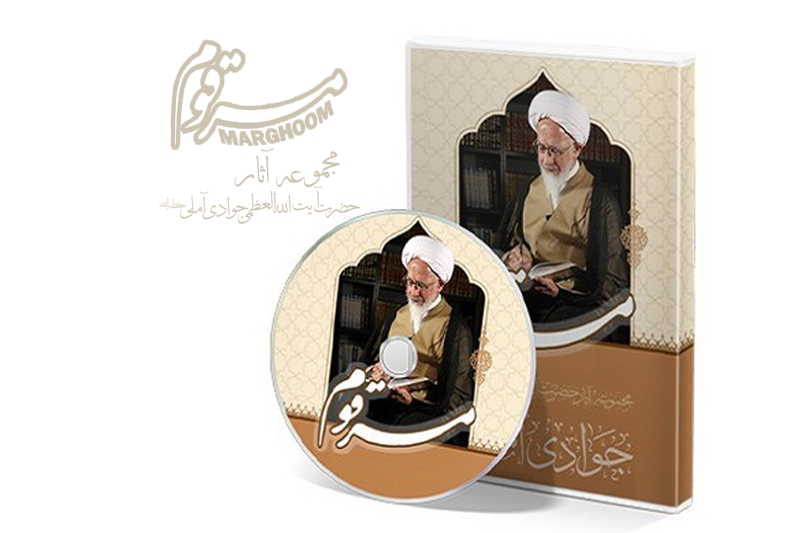
 Esra Publishing Center, the exclusive publisher of Ayatollah Javadi Amoli's works, started working in 1993; Among the missions and duties of the center are the production of written works with the desired and standard quality, fast and timely supply at the right price and supporting the products, providing easy, fast and low-cost access to the products for the domestic and foreign audiences, attending domestic and foreign international exhibitions, ….
Esra Publishing Center, the exclusive publisher of Ayatollah Javadi Amoli's works, started working in 1993; Among the missions and duties of the center are the production of written works with the desired and standard quality, fast and timely supply at the right price and supporting the products, providing easy, fast and low-cost access to the products for the domestic and foreign audiences, attending domestic and foreign international exhibitions, ….
